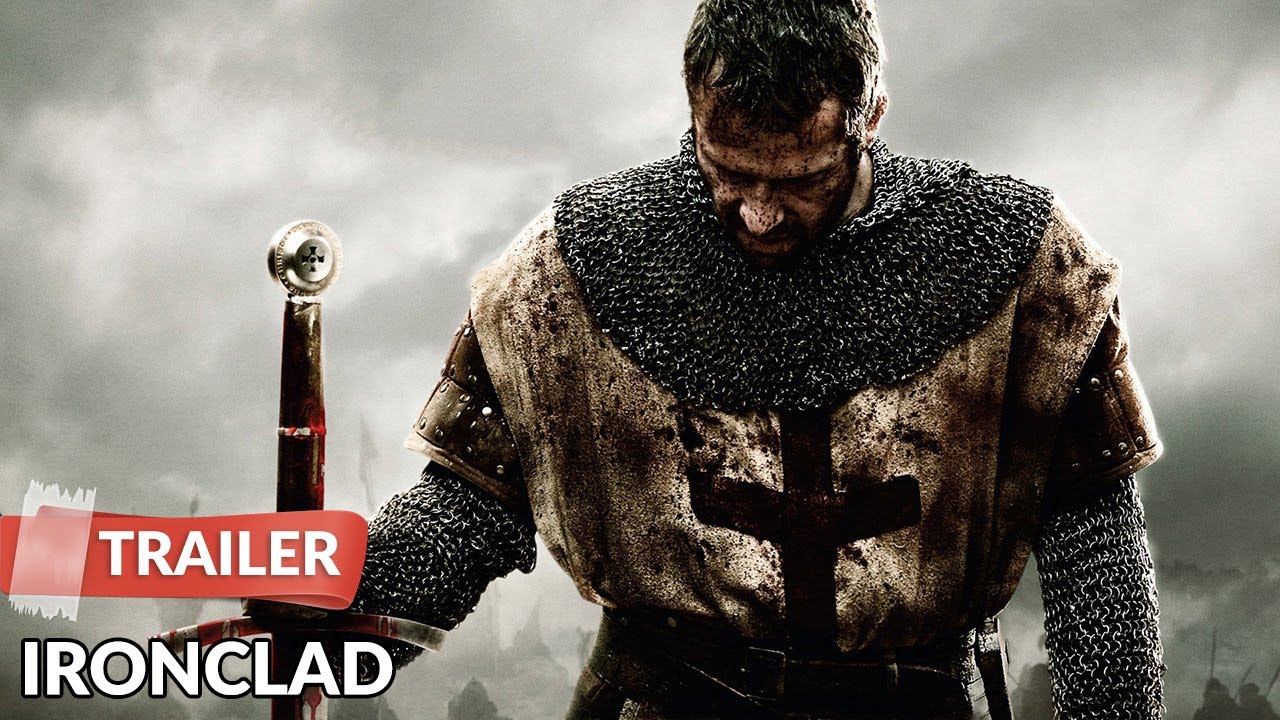Ironclad (2011)

“Ironclad,” directed by Jonathan English and released in 2011, is a historical action drama that delves into the tumultuous period of the early 13th century, specifically focusing on the aftermath of the signing of the Magna Carta. Set against the backdrop of political intrigue and warfare, the film tells a gripping story of loyalty, courage, and the struggle for justice, encapsulated in the siege of Rochester Castle.
The plot centers around a group of Knights Templar and English barons who, after the signing of the Magna Carta, find themselves embroiled in a fierce conflict against the tyrannical King John, portrayed by Paul Giamatti. The king, determined to reclaim his power and authority, lays siege to Rochester Castle, which has become a symbol of rebellion against his rule. The film opens with a prologue that sets the stage for the unfolding drama, introducing viewers to the historical context and the stakes involved.
One of the film’s strongest elements is its character development, particularly the portrayal of Thomas Marshall, played by James Purefoy. Marshall is depicted as a noble knight torn between his loyalty to King John and his commitment to the ideals of justice and freedom. His journey from a soldier serving a flawed king to a leader fighting for the rights of the barons forms the emotional core of the narrative. The film effectively captures his internal struggle, showcasing the themes of honor and moral responsibility that resonate throughout the story.

The cinematography and production design in “Ironclad” are particularly noteworthy. The filmmakers created a visually striking representation of medieval England, from the imposing stone walls of Rochester Castle to the grim realities of battle. The attention to detail in the set design, costumes, and weaponry immerses the audience in the historical period, adding authenticity to the film. The siege scenes are especially well-executed, blending practical effects with CGI to create intense and brutal battles that highlight the ferocity of medieval warfare.
The action sequences in “Ironclad” are a standout feature, offering a raw and unfiltered depiction of combat. The film does not shy away from the violence of the time, presenting battles that are chaotic and bloody. This gritty realism serves to heighten the stakes for the characters, making their struggles more poignant. The choreography of the fight scenes, combined with the film’s pacing, ensures that the audience remains engaged and invested in the outcome.

The supporting cast also contributes significantly to the film’s impact. Notable performances include Brian Cox as the wise and steadfast Baron William de Saye and Kate Mara as the strong-willed lady of the castle, who plays a crucial role in the unfolding events. The interactions between characters add depth to the story, showcasing the complexities of loyalty, betrayal, and camaraderie during a time of turmoil.

Beyond its action and drama, “Ironclad” offers commentary on the nature of power and governance. King John is depicted as a tyrant whose thirst for control leads to widespread suffering and conflict. The film raises questions about the legitimacy of authority and the rights of the governed, themes that resonate even in contemporary discussions about leadership and justice. The barons’ fight against King John serves as a historical metaphor for resistance against oppression, underscoring the enduring struggle for freedom and human rights.

In conclusion, “Ironclad” is a compelling historical action drama that effectively combines intense action with meaningful character development and social commentary. Through the lens of Thomas Marshall and his fellow knights, the film explores the themes of honor, loyalty, and the fight for justice during a pivotal moment in English history. Jonathan English’s direction, along with a talented cast and stunning visuals, creates an engaging cinematic experience that leaves a lasting impression. “Ironclad” serves not only as an entertaining portrayal of medieval conflict but also as a reflection on the timeless principles of freedom and resistance against tyranny, making it a noteworthy addition to the genre.











